Voices from the Pacific: A Roundtable on Climate Justice and Women’s Health

Over two powerful days in Sydney, researchers, policymakers, community leaders, and health professionals from across the Pacific gathered to tackle one of the most urgent and complex challenges of our time: the intersection of climate change and women’s health. Hosted by the George Institute for Global Health, this workshop spotlighted lived experiences, community-led solutions, and a collective call for climate justice.
DAY ONE: Grounding in Stories & Lived Realities
Welcome & Opening Reflections
Aunty Ann Weldon of the Metropolitan Local Aboriginal Land Council opened the event with a profound Welcome to Country. She shared moving stories of resilience, family matriarchs, and the ongoing impacts of colonisation. Her reflections grounded the workshop in the unceded land of the Gadigal people, reminding us that justice must always begin with listening to and learning from First Nations people.
"Because of her, we can." – Aunty Anne, honouring the women who shaped her life and community.
Session one
Theme: Understanding the Impact of Climate Change on Women's Health Across the Pacific
Laura Downey from the George Institute set the stage by outlining the disproportionate effects of climate change on women:
- Women are 14% more likely to die in climate emergencies
- Make up 80% of those displaced
- Face higher risks of preterm birth, miscarriage, and stillbirth during climate events
- Endure increased gender-based violence in post-disaster contexts
Panel discussions included speakers from Papua New Guinea, Fiji, Vanuatu and the Republic of Marshall Islands
Key insights included:
- Health impacts: Increases in malaria, dengue, skin infections, and NCDs due to environmental shifts.
- · Food insecurity: Erosion of arable land, disrupted agriculture, and loss of traditional fishing practices.
- · Invisible burdens: Women taking on intensified caregiving roles during disasters, often neglecting their own health.
- · Cultural barriers: Gender roles that limit women's access to health services and decision-making.
"We are resilient, but that doesn’t make us less vulnerable."– Pacific delegate
“Even though we are sick, we must carry the burden of the family.” – Speaker from Papua New Guinea (PNG)
DAY TWO: From Lived Experience to Systemic Change
Session Highlights
Theme: Community-Led Solutions & Policy Priorities
A recurring theme was community ownership. Speakers called for locally-driven solutions that are culturally sensitive and gender responsive. Several noted that while many projects are well-intentioned, they fail due to lack of local consultation and meaningful collaboration.
Challenges with policy implementation were also discussed. While Pacific nations have policies on gender equity and climate resilience, these often remain underfunded, poorly implemented, or blocked by existing patriarchal structures.
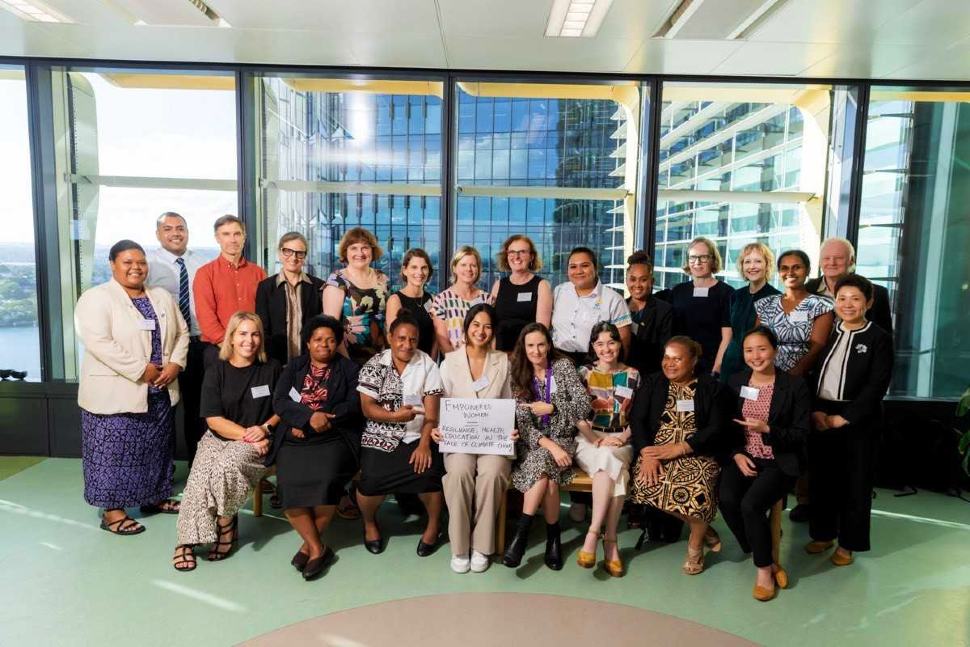
A vibrant discussion emerged around gender representation:
- The need for equal participation of women in policy-making, village councils, and health system design
- Faith-based and traditional structures were seen as both barriers and potential enablers—especially when engaged respectfully
The group explored community-led service provision, mental health, and the role of grassroots women’s organisations, with suggestions for:
- Safe spaces for women post-disaster
- Mental health services tailored to cultural context
- Better visibility and support for informal care networks
Participants identified several clear actions and principles for moving forward:
- Support Pacific-led, culturally grounded solutions
Policy and programming must be designed with, not for, local communities—especially women. - Ensure equitable representation
Mandate women’s voices at all levels—from community to national leadership. Consider gender-sensitive consultation practices. - Bridge the implementation gap
Support countries not only in developing policies, but in resourcing and executing them—especially around maternal health, disaster preparedness, and GBV prevention. - Rethink donor engagement
Donor and development organisations must shift from top-down models to ones that trust and elevate local leadership and knowledge. - Build capacity in gender and climate literacy
Train local leaders—including men and youth—to understand the specific impacts of climate change on women and to become advocates for change.
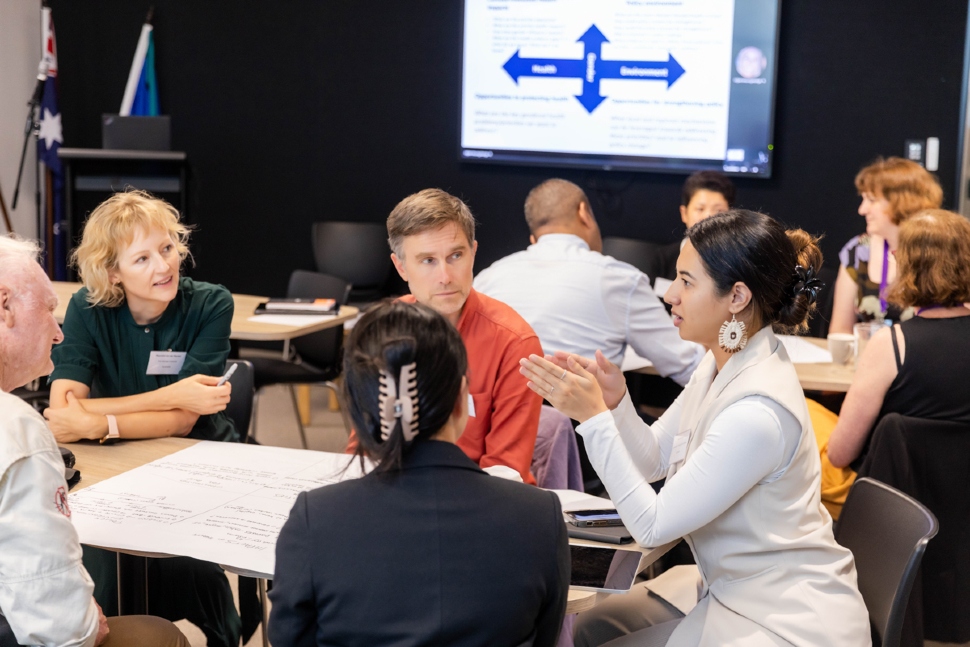
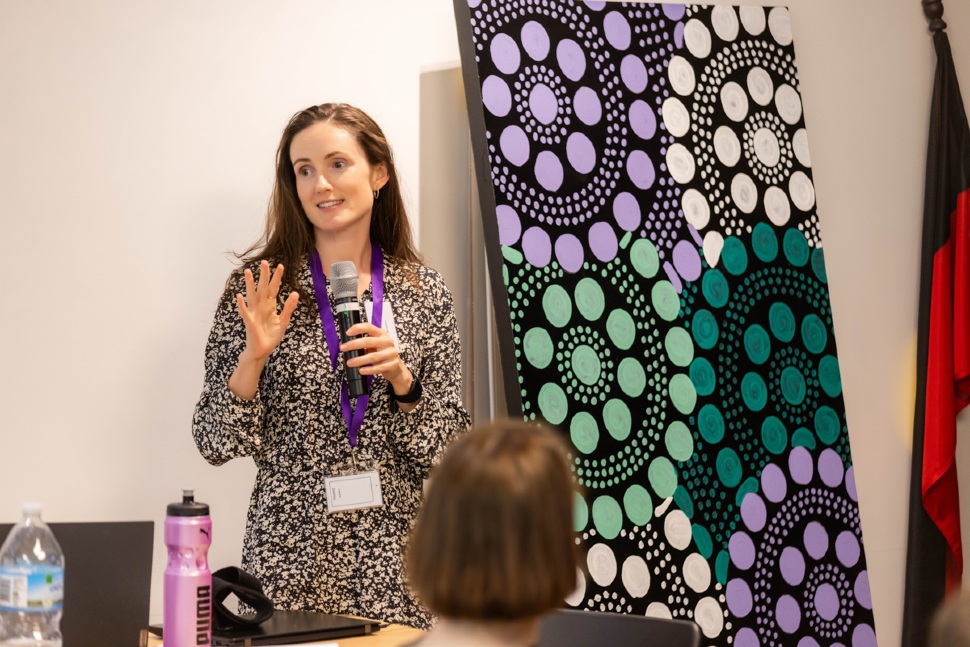
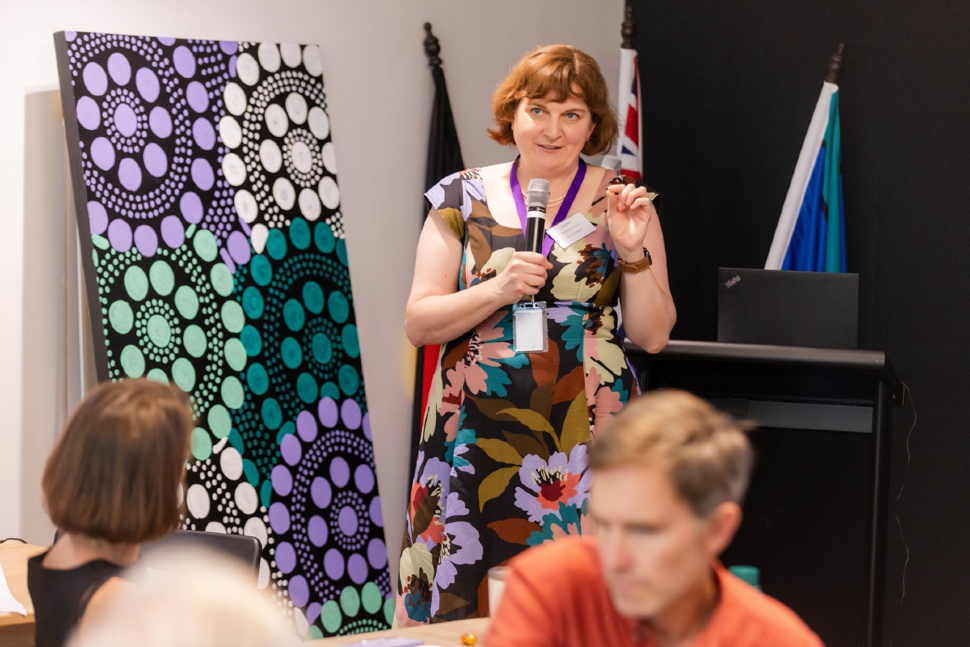
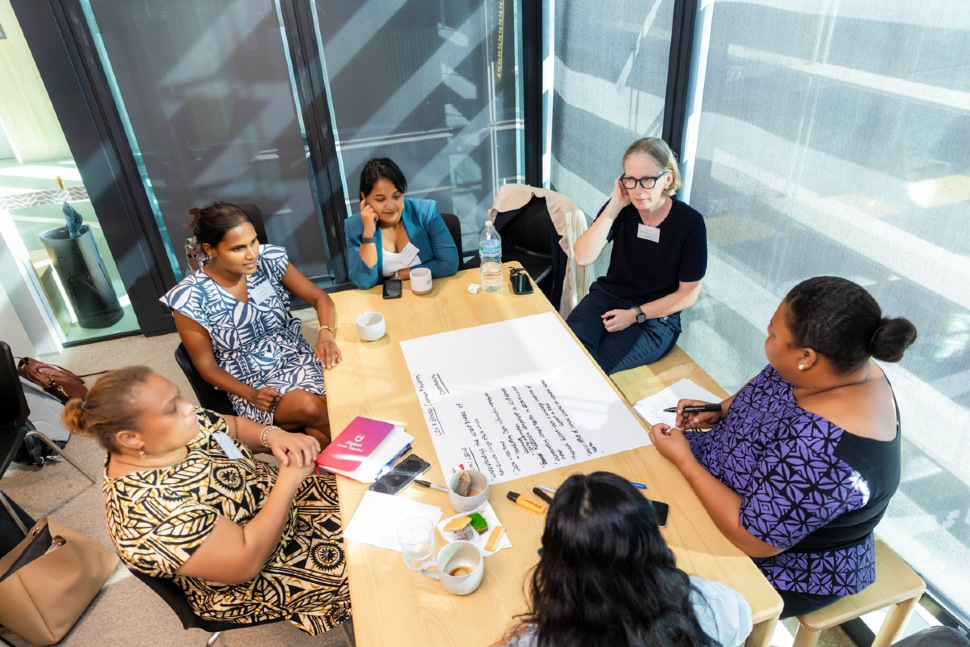
Final Reflections
“We live this crisis every day. You call us experts—we are.”
This workshop was a vital reminder that climate justice is health justice, and both are deeply gendered. The stories, insights, and priorities shared will help guide a new coalition of partners working to support women’s health in the face of an escalating climate crisis.
Photo credits: The George Institute for Global health
Stay connected and updated
Subscribe to our mailing list for the latest news, events, and updates in health research.
